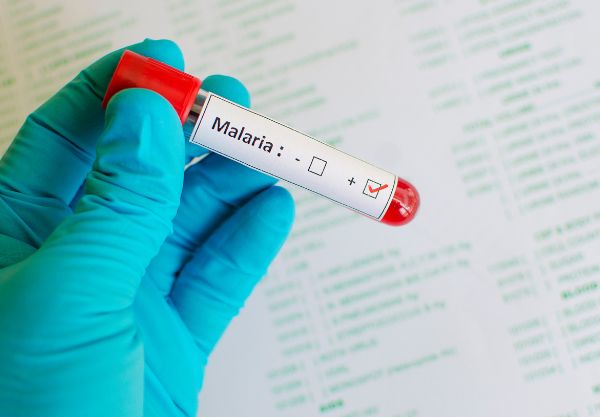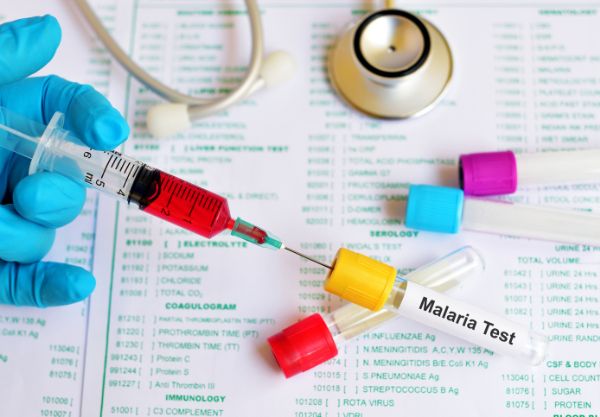Table of Contents
Objective
Explain, in clear and simple language, how rapid malaria testing fits into Trinidad and Tobago’s public health plans by improving early case detection, uniform reporting and coordinated field actions across different cities.
Introduction: Rapid testing as a surveillance tool, not a gadget
Malaria risk in Trinidad and Tobago mainly relates to imported cases and prompt control of any local transmission. The Ministry of Health and its partners use fast, standardized testing methods to support surveillance, case investigation and vector control. A Malaria Rapid Test can turn a suspected fever into a clear signal that the system can act on right away. When clinics and outreach teams record results the same way across cities, public health teams can see patterns and respond quickly. The following sections describe, city by city, how testing steps-triage, recording, confirmation and notification-link directly to government workflows such as case verification, entomological assessments and coordinated community messaging.
Malaria Rapid Test – Port of Spain: Central triage and same-day reporting
In Port of Spain, major hospitals and public clinics use a Malaria Rapid Test to screen febrile patients with travel histories or symptoms that align with malaria. Staff record the test panel, time of testing and basic epidemiological details (travel dates, destination, onset date) using standard forms. Results may move the same day to national surveillance databases, which allows case investigators to start timelines and plan household checks. Port of Spain teams coordinate with vector control to schedule site visits if a case requires local investigation. This steady, same-day data pathway keeps central dashboards current and supports quick decisions on contact tracing and health alerts.

Malaria Test Kits – San Fernando: Clinic flow and case verification
San Fernando clinics integrate Malaria Test Kits into routine fever triage. A positive rapid result can prompt immediate blood collection for microscopy or molecular confirmation according to protocol. The clinic logs the test outcome, notes travel routes and signals the regional surveillance officer. Vector teams may plan site inspections near the patient’s residence, especially if symptoms start after return from travel. San Fernando’s workflow focuses on clear documentation and rapid handoffs, so lab, field and community teams act in sync.
Malaria Rapid Test Kit – Chaguanas: Public–private data capture

Chaguanas has a mix of public facilities and private providers. A Malaria Rapid Test Kit used in private outpatient settings can still feed the public health view when providers follow the same recording rules: test used, date-time, travel timeline and clinical notes. Results may be transmitted through approved channels to surveillance officers, who can compare signals from both sectors. This approach reduces blind spots and keeps the regional map accurate, even when patients first present to private clinics.
Malaria Test Kit – Arima: Port health links and mobile teams
Arima’s location makes it a useful waypoint for travellers. A Malaria Test Kit serves as a quick check when people with fever report recent travel to malaria-endemic areas. If a result is positive, Arima’s clinics may coordinate with mobile teams to follow up at the home address for symptom monitoring and education. Data from these encounters can flow to the national system the same day, ensuring the central team sees the full picture and can schedule any required vector assessments.
Malaria Antigen Test Kit – Sangre Grande: Sorting malaria from other fevers
In Sangre Grande, clinicians use a malaria antigen test kit during the first evaluation of fever when malaria is on the differential. Staff collect the sample, run the test according to instructions and record the result window accurately. Because dengue and other illnesses can mimic malaria, early testing may help clinicians direct patients to the right follow-up pathway. Surveillance officers can then align laboratory confirmation and vector activities based on standardized notes taken at the point of care.
Malaria Rapid Diagnostic Kit – Couva: Laboratory linkages and timelines
Couva facilities use a malaria rapid diagnostic kit to start the diagnostic chain. Positive screens may be paired with confirmatory samples sent to designated laboratories. The facility logs the collection time, the courier handover and result return estimates. This clear timeline helps surveillance track each step and prevents delays. Couva’s teams may also notify vector control early, so site visits can be scheduled if confirmation remains pending but clinical suspicion is high.

Malaria Rapid Diagnostic Test Kit – Diego Martin: Community protocols and clear messaging
Diego Martin primary care sites apply a malaria rapid diagnostic test kit within a simple protocol: test, record, confirm, notify. Staff share plain-language guidance with patients about what happens next-follow-up testing, home checks if needed and symptom monitoring. Community health workers may support this process by reinforcing timelines and ensuring that travel histories are complete. This steady routine keeps data clean and responses predictable.
Malaria Home Test Kit – Point Fortin: Guidance on appropriate use
While a malaria home test kit may exist on the market, Point Fortin clinics emphasize that malaria testing usually occurs in clinical settings where results can be recorded and acted upon. If someone tests outside a clinic and reports a positive result, staff log the claim, repeat a validated test and collect samples for confirmation. The purpose is not to shift testing home; it is to ensure any external results enter the official workflow so public health steps are not missed.
Malaria Self Test Kit – Scarborough (Tobago): Tourism-sensitive coordination
In Scarborough, a malaria self test kit may be discussed with travelers, but public health teams encourage testing in clinics to maintain data quality. If a visitor presents a self-test result, the clinic repeats testing with a validated procedure, captures the travel timeline and notifies surveillance for next steps. Tobago’s teams may coordinate with hospitality and port authorities to share neutral, helpful messages during periods when imported fever cases increase.
Malaria Rapid Screen Test – Roxborough (Tobago): Field logs and household checks
Roxborough uses a Malaria Rapid Screen Test in field settings when mobile teams respond to suspected cases. Field logs capture GPS or area codes, time, travel history and result. If screens are positive, teams plan household checks and mosquito source reviews with vector control. These steps are recorded in simple forms that sync to the national system when connectivity is available, keeping the central dashboard aligned with field activities.
Malaria Test Kits manufacturer – St. Joseph: Standardization and training notes
Training at regional centers in St. Joseph highlights how instructions from a Malaria Test Kits manufacturer support uniform use-timing the test window, reading lines under proper lighting and recording lot numbers. Staff may keep quick-reference cards to avoid interpretation drift. These small details help maintain consistent results across facilities and over time, which supports fair comparisons between cities.
Malaria Rapid Test – Diego Martin to Chaguanas Corridor: Transport and storage discipline
Along busy corridors, clinics using a Malaria Rapid Test follow storage rules and track expiry dates. They may document temperatures for transported boxes during field deployments. This routine protects test integrity and ensures that a positive or negative result is trustworthy. Clear storage logs also make it easy to trace any batch-related issues if questions arise.
Malaria Test Kit Manufacturers – San Fernando to Point Fortin: Lot tracking and traceability
Facilities between San Fernando and Point Fortin record lot numbers and expiry dates provided by Malaria Test Kit Manufacturers. When each result links to a specific lot, quality checks become faster. If a later review flags a concern, teams can identify where that lot was used and recheck affected records quickly. This traceability supports program credibility and efficient audits.
Malaria Rapid Diagnostic Test Kit – Arima to Piarco (Port Health): Travel-linked workflows
At port health stations, a malaria rapid diagnostic test kit may be used per protocol when passengers report fever and recent travel to endemic regions. Positive screens trigger clinical referral and official notifications. These checkpoints do not replace clinical care; they add an extra net in places where imported cases can appear. The workflow keeps personal details secure while ensuring surveillance gets timely signals.
Malaria Antigen Test Kit – San Juan/Laventille: Data completeness and weekly reviews
San Juan/Laventille clinics using a malaria antigen test kit focus on complete records-test type, result, timing and travel details. Weekly reviews check for missing fields and correct them quickly. This habit keeps the national dataset strong and reduces confusion during investigations. Teams may also compare records with lab confirmations to ensure screen-and-confirm steps line up.

Malaria Rapid Test Kit – Scarborough to Roxborough: Vector control alignment
In Tobago, a Malaria Rapid Test Kit result can align with vector control scheduling. When a positive screen appears, health teams may plan larval habitat checks near the case location while waiting for confirmation, if policy allows. Field notes and photos (where approved) help track response steps. This alignment keeps teams ready without overreacting.
Malaria Test Kit – Couva–Chaguanas: Simple reporting forms and patient timelines
Clinics in the Couva–Chaguanas area use a Malaria Test Kit with short, standardized forms. Staff document symptom onset, travel dates and test time. This timeline view can show whether symptoms match exposure windows, which helps epidemiologists make sound judgments about likely infection sources. Clear forms speed up reviews and reduce back-and-forth questions.
Conclusion
Across Port of Spain, San Fernando, Chaguanas, Arima, Sangre Grande, Couva, Diego Martin, Point Fortin, Scarborough, Roxborough and neighboring corridors, rapid malaria testing supports government health initiatives by turning each fever check into a usable surveillance signal. A Malaria Rapid Test is most effective when teams follow the same steps: test correctly, record completely, confirm as required and notify without delay. Consistent storage, clear forms and lot tracking-guided by Malaria Test Kit Manufacturers-keep the data reliable. With these habits, Trinidad and Tobago’s public health system can see imported risks early, coordinate vector actions and keep information aligned across cities and islands. The result is a steady, predictable workflow where clinical care, laboratory confirmation and field response move together, supporting national goals with clear evidence at every step.






